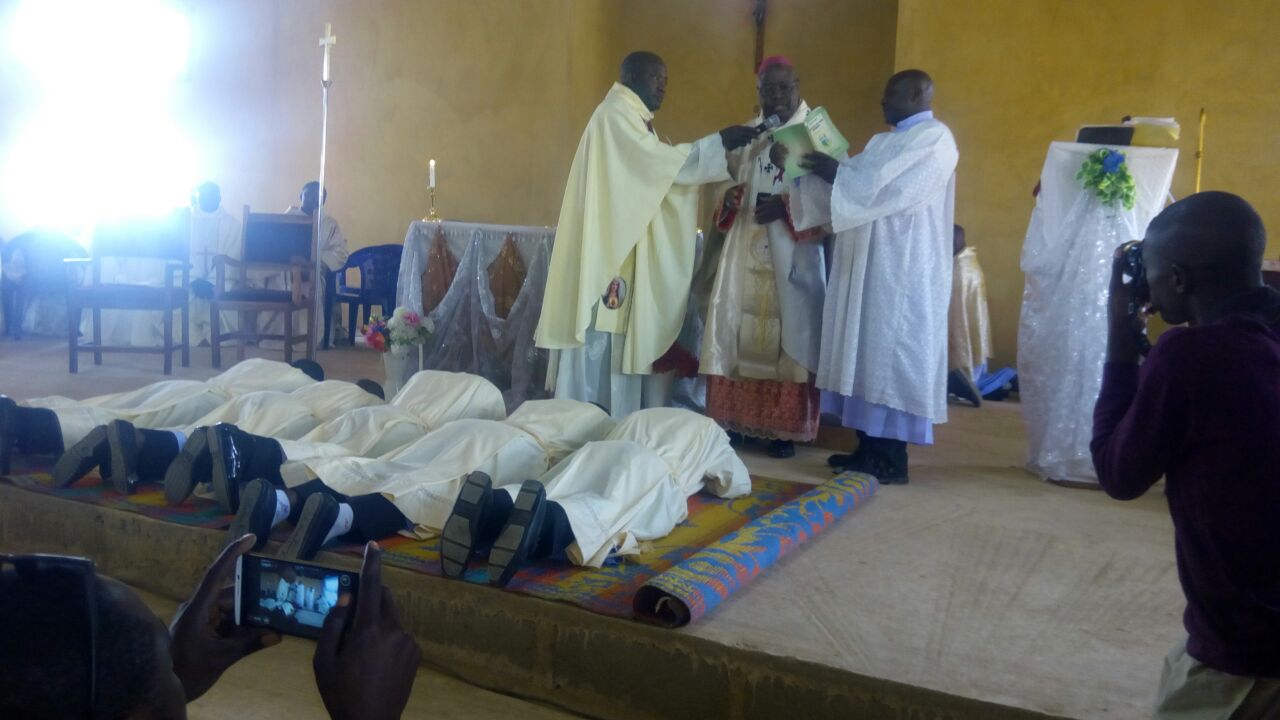End of the Synod on Synodality in the Vatican
End of the Synod on Synodality in the Vatican.
Today, Sunday, the 27th October, 2024, a Holy Mass presided by Pope Francis marked the end of the second phase of the “Synod on Synodality,” bringing an end to the three-year programme of synodal activities. While the Synod may have ended, the spirit of synodality must continue, as the Holy Father calls all of us to be missionaries of synodality.
Like the first phase of the Synod, the second phase was held in an atmosphere of prayer, listening, and frank sharing. It was characterized by “conversation in the spirit” involving over 350 participants drawn from all the continents of the world to represent Cardinals, Bishops, priests, deacons, male and female religious, fraternal delegates from other churches, lay men and women, young people, catechists and others.
The Synod with the general theme, “For a Synodal Church: Communion, Participation, and Mission,” treated various themes, this time with the aim of deepening the understanding of how a Synodal Church should be. The Catholic Church should never be identified as the Church of the Rev. Fathers, or Bishops or only the Lay people; it is a Church of all the baptized, for all the lay, consecrated, the young, women, clergy, all built into the Body of Christ.
The topics discussed included the issue of unity while respecting diversity and inculturation. Others were about listening, discernment, missionary service, transparency, accountability and evaluation, participation of women, lay men, young people in promoting the faith and contributing to the spiritual, pastoral, and material progress of the Church; the formation of all the baptized for missionary service, collaboration, formation of the clergy, ecumenism, inter-religious dialogue, the ministry of the Pope, the conference of Bishops, collegiality, digital culture, and a host of other matters.
Unlike previous Synods of Bishops which was exclusively for Bishops, with only some non-Bishop delegates invited, this Synod on Synodality was all inclusive, with the different segments in the Church well represented. Every delegate, clerical or lay, young or old, woman or man, had a voice and could make interventions allowed for only three minutes at any given opportunity. Divided into a group of ten or twelve persons per table, we all sat round the table as family members usually do. Each group discussed freely and voted on whatever was to be presented as the fruit of their discussion. No single individual dominated the group discussion.
Somel doctrinal, pastoral, canonical and ethical issues that need more time for discernment and study were entrusted to ten study groups by the Pope. They will work on the themes and submit their study to the Holy Father by June, 2025.
In all, the final document has 155 paragraphs, fruit of the synodal discussions which were voted upon one by one. At the end of the voting, the Holy Father who was personally present for many of the sessions (and always well before time) approved the document in its entirety and said there was going to be no post-synodal exhortation as usual. He instructed that the document should be released and published immediately. With this, the document becomes as authoritative as the one the Pope would have issued in a post-synodal exhortation.
The Synod delegates elected new members of the Ordinary Council of the General Secretariat of the Synod of Bishops (in addition to those named by the Holy Father or by virtue of their office). The Ordinary Council of the General Secretariat is responsible for preparing and implementing the Ordinary General Assembly and preparing for the next Synod. Chaired by the Holy Father, the Council is an essential part of the General Secretariat.
There were three of us delegates from Nigeria: Bishop Matthew Kukah of Sokoto (he stood in for Archbishop Lucius Ugorji of Owerri and President CBCN who was indisposed to attend) Bishop Donatus Ogun of Uromi and Secretary of the CBCN, and I. We had the mandate of the Catholic Bishops of Nigeria to contribute to the discussions about Church unity and other crucial matters. Unity is an imperative, namely, no matter what the issues may be, the Catholic Church must strive to remain One, Holy, Catholic and Apostolic – that one big universal family we have always been. This unity which springs from our baptismal dignity, lived and celebrated in the Eucharist is what has kept the Catholic Church (like no other institution) going for over two thousand years despite our challenges, failings and even the unwarranted attacks from many unfriendly quarters.
All we need to do as Catholics is to continue “walking together” as disciples of Jesus, with our diverse charisms and ministries put into the service of the Body of Christ under the Successor of St. Peter, the Pope.




